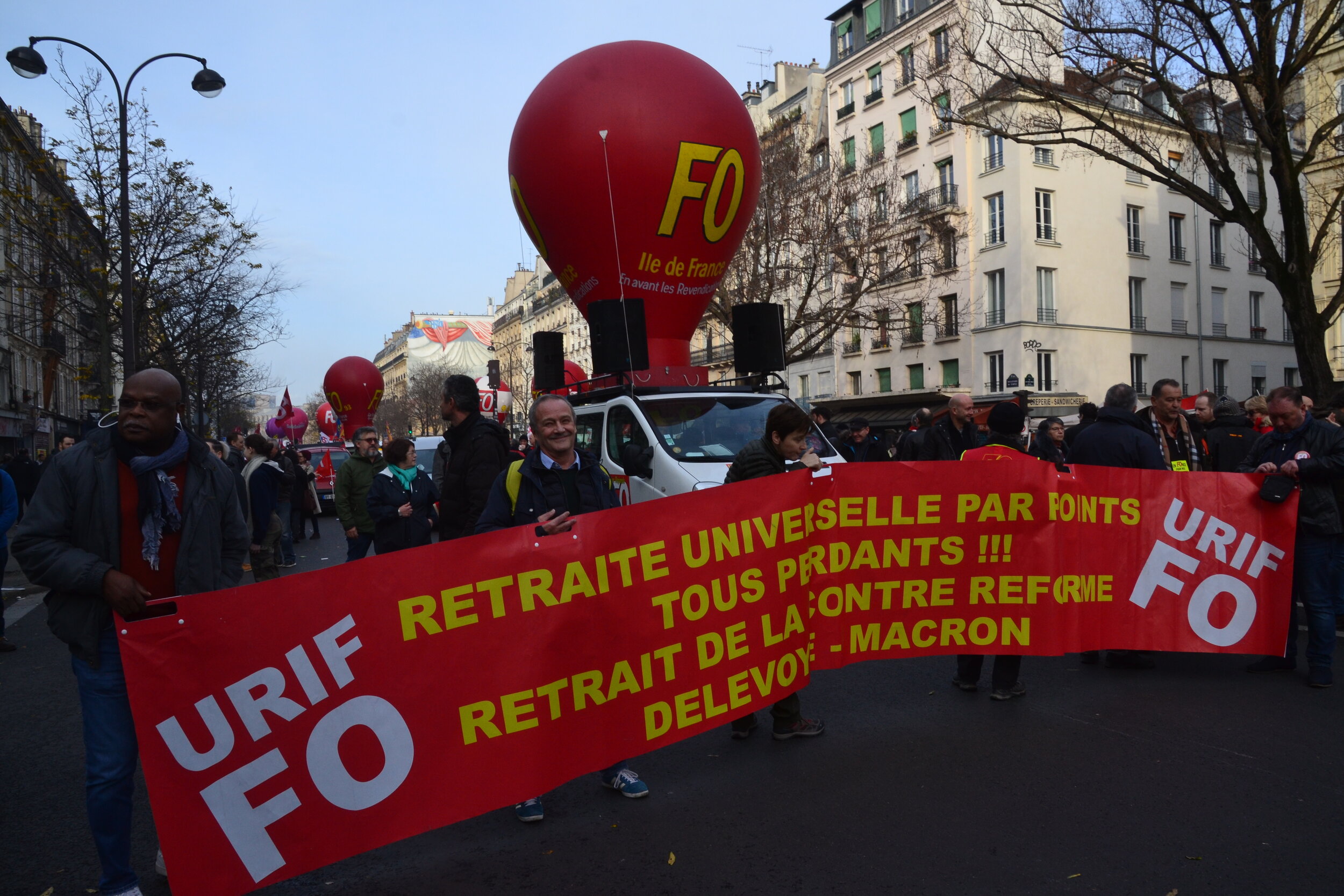May Day Protests in France Signal the Public’s Frustrations with Macron
Members of la Force Ouvrière protest against proposed reforms to French social security in 2019. People angered by Macron’s changes to unemployment benefits protested across France on May 1. (Wikimedia Commons)
Police arrested dozens of protesters throughout France on May 1, amidst International Labor Day demonstrations that drew more than 100,000 participants. In Paris, protesters set trash cans on fire and broke the windows of banks. In response, police fired tear gas into the crowd. The day ended with a total of 56 arrests and six injured police officers.
The protesters gathered to demand that President Emmanuel Macron withdraw his reforms to pensions and unemployment insurance, which will begin July 1 after being delayed due to the COVID-19 pandemic. The reforms will reduce benefits for the unemployed, among other measures.
One French protester told Agence France-Presse, “the so-called reforms … are going to take away people’s ability to live, job-seekers … are going to lose their benefits … We absolutely need to express ourselves.” Ivan Gineste, a French citizen, cited “the health and social situations and the general impoverishment of society” as his reasons for joining the protests.
Philippe Martinez, the General Secretary of the General Confederation of Labor, who helped organize the protests, said the goal of the demonstrations was “to prevent the months [sic] of May and the months that follow from being identical to what we knew before lockdown, that is to say restructuring, a lot of money for those who have a lot and even less for those who do not.”
Several past presidential candidates attended the protests, attempting to harness the frustration directed at Macron into support for their runs. Marine Le Pen, a far-right candidate currently leading Macron in the polls, warned against re-electing Macron, saying, “We have just lived through four years of chaos, division, [and] fragmentation.” Jean-Luc Mélenchon, of the left-wing La France Insoumise party, told protestors in Lille that his “wish for the working class is that it can be free of the fear of being unemployed.”
The demonstrations, well attended despite COVID-19 concerns, indicate continued discontent with Macron’s policies, placing him in a precarious position as he faces voters in 2022.

